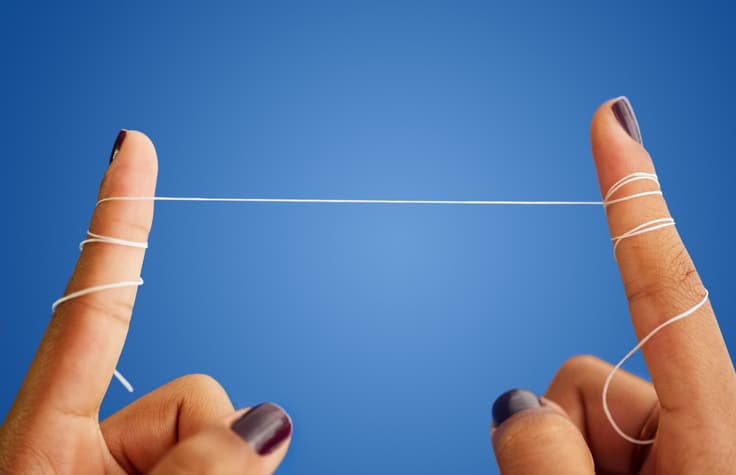
Step Up Your Oral Care Game
According to Medline Plus, the biggest cause of bleeding gums is plaque buildup along the gumline. When you don’t remove plaque in a timely manner, it hardens into tartar, a calcified material that plaque adheres to and continues to irritate the gums, which may cause them to bleed and can progress into more advanced forms of gum disease. The best way to reduce plaque buildup and your risk for bleeding gums is to amp up your oral care routine.
Remember to brush twice a day using fluoride toothpaste. Floss at least once a day as well; gums can sometimes stop bleeding with regular flossing. And of course, seeing your dentist on a regular basis – not just when you have a problem or concern – is also a must to keep your mouth in the best shape.
Take a Look at Your Tools
If you do brush and floss regularly and are visiting your dental office multiple times a year, your oral hygiene care tools could be what’s causing your gums to bleed. Although it might seem that a toothbrush with medium or firm bristles cleans your teeth and gums more deeply or thoroughly, harder bristles usually just cause irritation – which can be why your gums are bleeding. The American Dental Association (ADA) Mouth Healthy site recommends using a toothbrush with soft bristles, which cleans your teeth and gums thoroughly without irritation.
In some cases, it might not be the tools that are causing the bleeding, but the way you’re using them. If you’ve been out of the habit of flossing, start again. You might see a bit of blood at your gumline, but remember to always use a gentle hand and avoid pressing the floss against your teeth and gums too hard.
Consider Your Medicine
Certain medicines also increase the likelihood that your gums will bleed. Some over-the-counter pain relievers, like aspirin, thin the blood and can therefore increase bleeding. It’s also possible for a prescription medication to cause gum bleeding. If that is the case, your doctor might prescribe a different dose or a different medication altogether. Always talk to your doctor if you think a medication is causing side effects, even if they seem mild.
See Your Dentist
If changing your oral care habits, adjusting your medications, and maintaining a healthy diet doesn’t help your gums stop bleeding, your next step should be to make an appointment with your dentist. They will examine your teeth and gums and determine if you have a more serious condition, such as advanced gum disease. Your dentist might also take an x-ray of the teeth and gums.
With the right diagnosis and personal care, bleeding gums can become a thing of the past.
